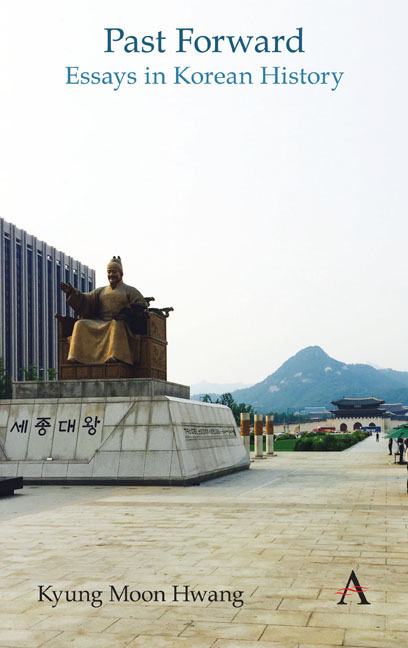Book contents
- Frontmatter
- Contents
- List of Figures
- Foreword
- Chronologies of Korean History
- Themes
- Acknowledgments
- Note on Romanization and Spelling
- Part I Circulating History
- Part II Durable Traditions
- Part III Ancient Remains
- Part IV Dynastic Depths
- Part V Modern Origins
- Part VI Challenges of Nationhood
- 30 Korea's Past in Light of Brexit
- 31 Openness and Exclusion
- 32 The North Korean View of History
- 33 Another Way to View National Division
- 34 The First National Assembly Elections
- 35 Who Started the Korean War?
- 36 Textbooks and Competing Nationalist Histories
- 37 The Complexities of Memorial Day
- 38 Adoption's Spotlight on Korean History
- 39 Questioning Monuments
- 40 Taking Ownership of the Past
- Part VII History Makers
- Part VIII External Presences
- Part IX Trials of Modernization
- Part X Gripped by the Past
- Index
37 - The Complexities of Memorial Day
from Part VI - Challenges of Nationhood
- Frontmatter
- Contents
- List of Figures
- Foreword
- Chronologies of Korean History
- Themes
- Acknowledgments
- Note on Romanization and Spelling
- Part I Circulating History
- Part II Durable Traditions
- Part III Ancient Remains
- Part IV Dynastic Depths
- Part V Modern Origins
- Part VI Challenges of Nationhood
- 30 Korea's Past in Light of Brexit
- 31 Openness and Exclusion
- 32 The North Korean View of History
- 33 Another Way to View National Division
- 34 The First National Assembly Elections
- 35 Who Started the Korean War?
- 36 Textbooks and Competing Nationalist Histories
- 37 The Complexities of Memorial Day
- 38 Adoption's Spotlight on Korean History
- 39 Questioning Monuments
- 40 Taking Ownership of the Past
- Part VII History Makers
- Part VIII External Presences
- Part IX Trials of Modernization
- Part X Gripped by the Past
- Index
Summary
Like many other nations victimized by imperialism and colonialism, South Koreans have faced difficult decisions about the ways they remember their military history. The observance of Memorial Day (Hyeonchungil) in South Korea every June 6th, for example, normally honors independence fighters against Japanese rule or soldiers who died in the Korean War or Vietnam War, but not the tens of thousands of Koreans who fought in World War II, a glaring omission. Such dilemmas raise very important questions, however, about how to view modern Korean history as a whole. We can begin with why certain soldiers are commemorated, while others are not.
Those who served in the South Korean military during the Korean War included many, especially in the commanding ranks, who also served the Japanese empire in its wars of imperialist aggression throughout Asia. These men are understandably counted among the fallen heroes, but only by ignoring the fact that they had also fought, in effect, against Korean independence during the Pacific War of World War II.
What explains this contradiction? It is the same reason why the thousands of Korean soldiers who died in World War II are almost completely forgotten. Many of them “volunteered” for the Japanese army from 1938 to 1944, but it turns out that most of these volunteers were forced into this duty by poverty or other circumstances that had nothing to do with their allegiance to the Japanese empire. The rest of the Korean soldiers in the Pacific War were conscripted, even apprehended, into military service between 1944 and 1945. In other words, they, too, were victims of Japanese colonial rule. Shouldn't this make them worthy of commemoration today?
The problem is that distinguishing between the true volunteers who fought willingly for Japan, on the one hand, and those who were forced into these terrible circumstances, on the other, is simply not possible, given the existing documentary evidence. And even if this evidence were available, how could one make such judgments about who enlisted with “proper” motives and who did not?
So the larger problem is more ethical and philosophical. Should Memorial Day and other efforts to commemorate military duty recognize only those who fought in the “good” wars? The soldiers, though, like those who fought in World War II, did not have a say in whether their particular war was just or legitimate.
- Type
- Chapter
- Information
- Past ForwardEssays in Korean History, pp. 107 - 110Publisher: Anthem PressPrint publication year: 2019



